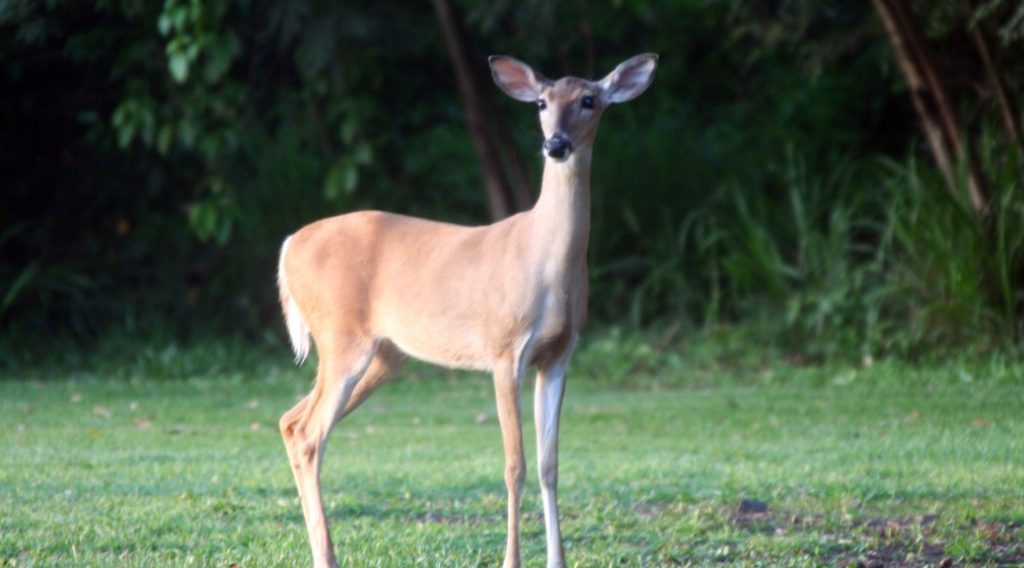CHRISTIANSTED — It will soon be legal to hunt local deer in the Virgin Islands — provided you have the proper permit.
The Department of Planning and Natural Resources (DPNR) said Wednesday that the Division of Fish and Wildlife (DFW) is currently developing pre-application guidelines and permit conditions to address deer predation in the territory.
Predation is defined as the killing by one living organism of another for food, according to DPNR.
“Recently many crop farmers throughout the territory have faced huge losses because of the increase in deer population,” DPNR Commissioner Dawn Henry said. “We anticipate that these guidelines, once approved and issued, will create a more harmonious and consistent approach to managing wildlife while minimizing crop losses.”
Until these guidelines are completed, DFW will accept and review permits at any time and consider them on a case-by-case basis.
Meanwhile, DPNR will continue to issue a limited number of “predation permits” to target nuisance deer.
The department is reviewing its procedures for issuing the permits to create uniform policies for obtaining the permits, said Nicole Angeli, the chief of wildlife for the department’s Division of Fish and Wildlife.
Predation permits differ from hunting permits in that they allow people to target individual deer in specific circumstances. This distinguishes them from a hunting license, which allow hunters to target any deer found in certain areas, Angeli said.
“We don’t actually issue specific hunting permits,” Angeli said. “We do have a hunter education course that’s very separate from these permits. The predation permits are available as a tool to manage nuisance wildlife.”
Nuisance wildlife refers to deer and other animals who threaten human lives or livelihood through their activities. In the case of deer, that involves eating crops or landscape plants for local farmers, she said.
Anecdotal evidence of increased deer population — the department doesn’t have scientific evidence on the size of the territory’s deer population — has in turn led to an uptick in public inquiries, Angeli said.
“We’ve always issued these permits, but there has been some increased interest,” she said.
While the predation permits themselves aren’t new, the department is reconsidering how the permits are issued, in order to create uniform standards across the territory, Angeli said.
“We’re currently working on developing guidelines and permit conditions,” she said. “In the meantime, we’re considering applications on a case-by-case basis.”
While the lore of hunting — tree stand, rifle, campfire and other accoutrements — may be familiar elsewhere in the country, they won’t necessarily apply here.
Among the items officials consider before issuing a predation permit is the method used to kill the deer, which can range from appropriately permitted firearms to bows and arrows to traps.
Non-lethal methods of keeping deer away from crops or gardens include electric fencing and commercially available deer repellent. Where fences are impractical or expensive, many popular garden websites recommend bars of soap placed at regular intervals near where deer are known to dine.
The agency isn’t examining a specific preferred method of taking deer in the territory, said DPNR spokesman Jamal Nielsen.
“For predation there’s more than one method of predation,” he said. “That doesn’t necessarily mean we’re going to be permitting guns.”
Stringent hunting parameters can include site visits by DPNR representatives, officials said.
Like most larger mammals in the territory, including mongoose, cows, horses, dogs and cats, deer are human imports. The first deer were imported to the territory in the 1790s for sport hunting, Angeli said.
Anyone interested obtaining a predation permit can call (340) 773-1082, ext. 2205.

